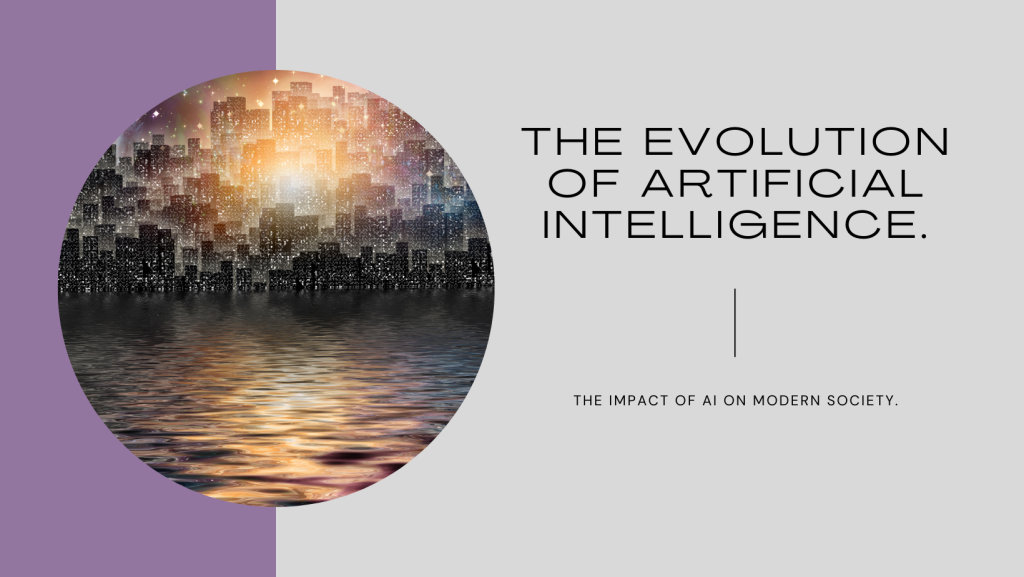The evolution of artificial intelligence (AI) has revolutionized modern society in profound ways, reshaping industries, transforming daily life, and presenting both opportunities and challenges for the future. From virtual assistants and self-driving cars to advanced medical diagnostics and predictive analytics, AI technologies are increasingly integrated into our lives, impacting everything from how we work and communicate to how we make decisions and solve problems.
One of the most significant impacts of AI on modern society is its role in automation and efficiency. AI-powered technologies have streamlined processes across various industries, from manufacturing and logistics to healthcare and finance, leading to increased productivity, cost savings, and improved outcomes. Automated systems can perform tasks faster and more accurately than humans, freeing up valuable time and resources for more complex and creative endeavors.
Furthermore, AI has revolutionized how we interact with technology, enabling natural language processing, image recognition, and machine learning capabilities that make devices more intuitive and responsive. Virtual assistants like Siri, Alexa, and Google Assistant have become ubiquitous features of our digital lives, providing personalized assistance, managing tasks, and anticipating our needs based on patterns and preferences.
Moreover, AI has the potential to revolutionize healthcare by enabling more accurate diagnoses, personalized treatment plans, and predictive analytics that can identify health risks and intervene early to prevent disease. Machine learning algorithms can analyze vast amounts of medical data to identify patterns and trends that may not be apparent to human practitioners, leading to more precise and effective healthcare interventions.
However, the widespread adoption of AI also raises important ethical and societal considerations. Concerns about job displacement, data privacy, algorithmic bias, and the potential for misuse of AI technologies underscore the need for thoughtful regulation, oversight, and responsible development practices.
In conclusion, the evolution of artificial intelligence has had a profound impact on modern society, revolutionizing industries, transforming daily life, and presenting both opportunities and challenges for the future. By harnessing the power of AI responsibly and ethically, we can unlock its full potential to improve lives, drive innovation, and shape a better future for all.


